KAISERSLAUTERN, Germany -- In a training scenario, U.S. Army Criminal Investigation Command officials announced they were working with Air Force investigators to review evidence related to an individual who had obtained castor beans with the intent of producing ricin, a poison found naturally in castor beans.
Raids on the quarters of the associates in the terrorist plot exposed detailed instructions for making the poison and directions to the makeshift lab.
This training scenario played out on a cold, cloudy morning, Sept. 16, 2010 as the 773rd Civil Support Team, 7th Civil Support Command arrived on scene at the hidden, yet notional, laboratory on Rhine Ordnance Barracks here.
The 773rd CST performed lane training conducted by U.S. Army North's Civil Support Training Activity. The pre-evaluation training event was held Sept. 16-21 to help prepare them for success in their upcoming certification.
"It's proving to be a great opportunity to really challenge our skill sets so we can refine our response practices," said Sgt. 1st Class Jay Drucas, the operations and training noncommissioned officer for the 773rd CST. "This is an excellent way to better prepare the unit for the unique challenges these missions present."
This exercise today is intended to help the 773rd CST to become certified through rigorous testing, said John D. Nonemaker, the lead observer and controller for U.S. Army North at the lane training.
"U.S. Army North is here specifically to help the 773rd CST streamline their individual and section tasks into a cohesive unit response in the event of a chemical, biological, radiological and/or nuclear incident," said Lt. Col. Timothy Pelfrey, the commander of the 773rd CST.
U.S. Army North, as the Joint Force Land Component Command and the Army Service Component Command to U.S. Northern Command, conducts homeland defense, civil support operations and theater security cooperation activities in order to protect the American people.
When the team arrived at a deserted building next to an old ammunitions site to investigate the suspected laboratory, the team had set up a temporary headquarters amid a collection of vans, trucks and large tents.
The survey recon team was the first to enter the suspected hazardous environment, suited in their personal protective equipment in preparation to discover what may be waiting behind the laboratory's closed doors.
After donning their suits, the team of three moved slowly toward the lab, wheeling a mobile stretcher loaded with detection devices, a radio and an air tank. Personal and buddy checks were complete.
With a last visual check, the team entered the building ...
All clear.
The 773rd CST is the only active Army Reserve civil support team stationed outside of the continental U.S. and its territories and is capable of deploying in support of U.S. Army Europe's response to a chemical, biological, radiological and/or nuclear incident.
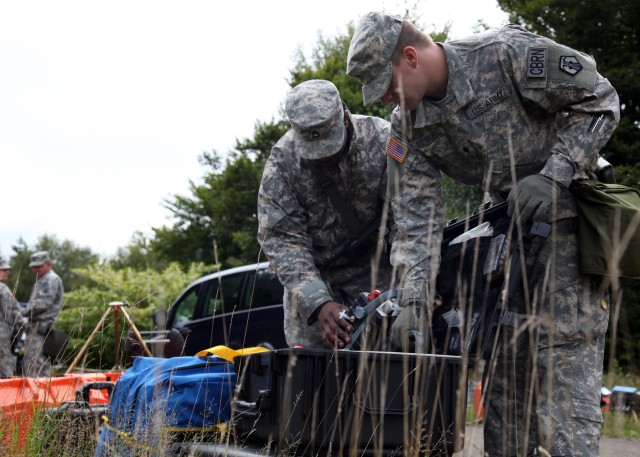
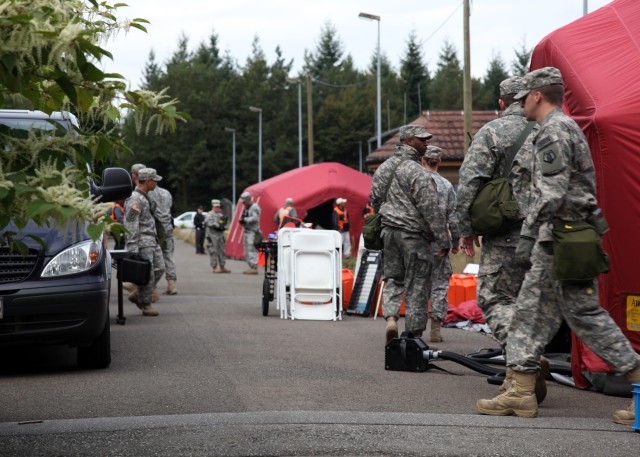
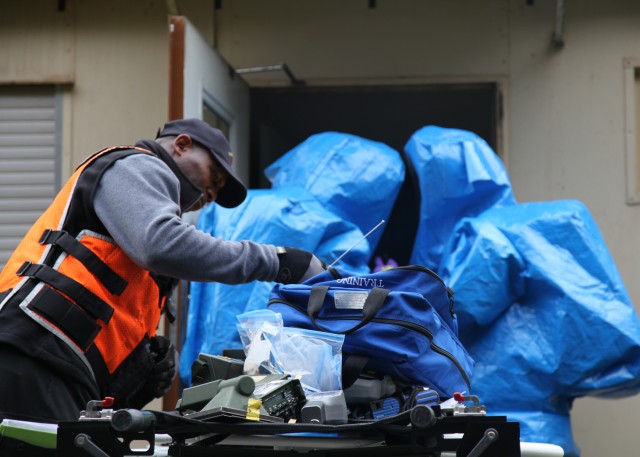
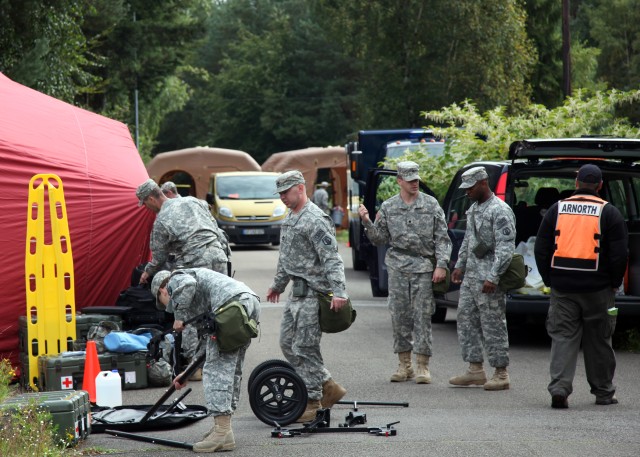
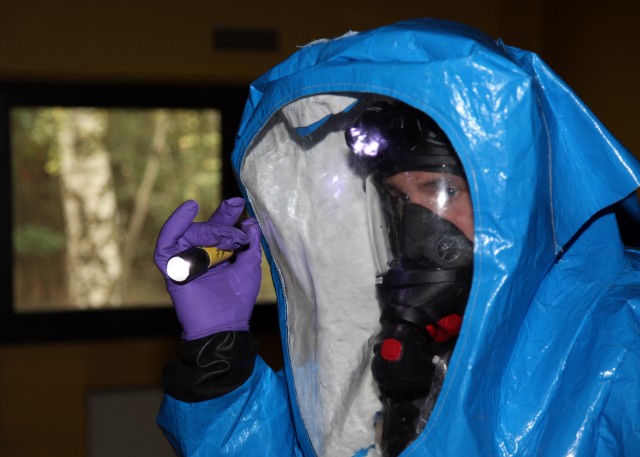
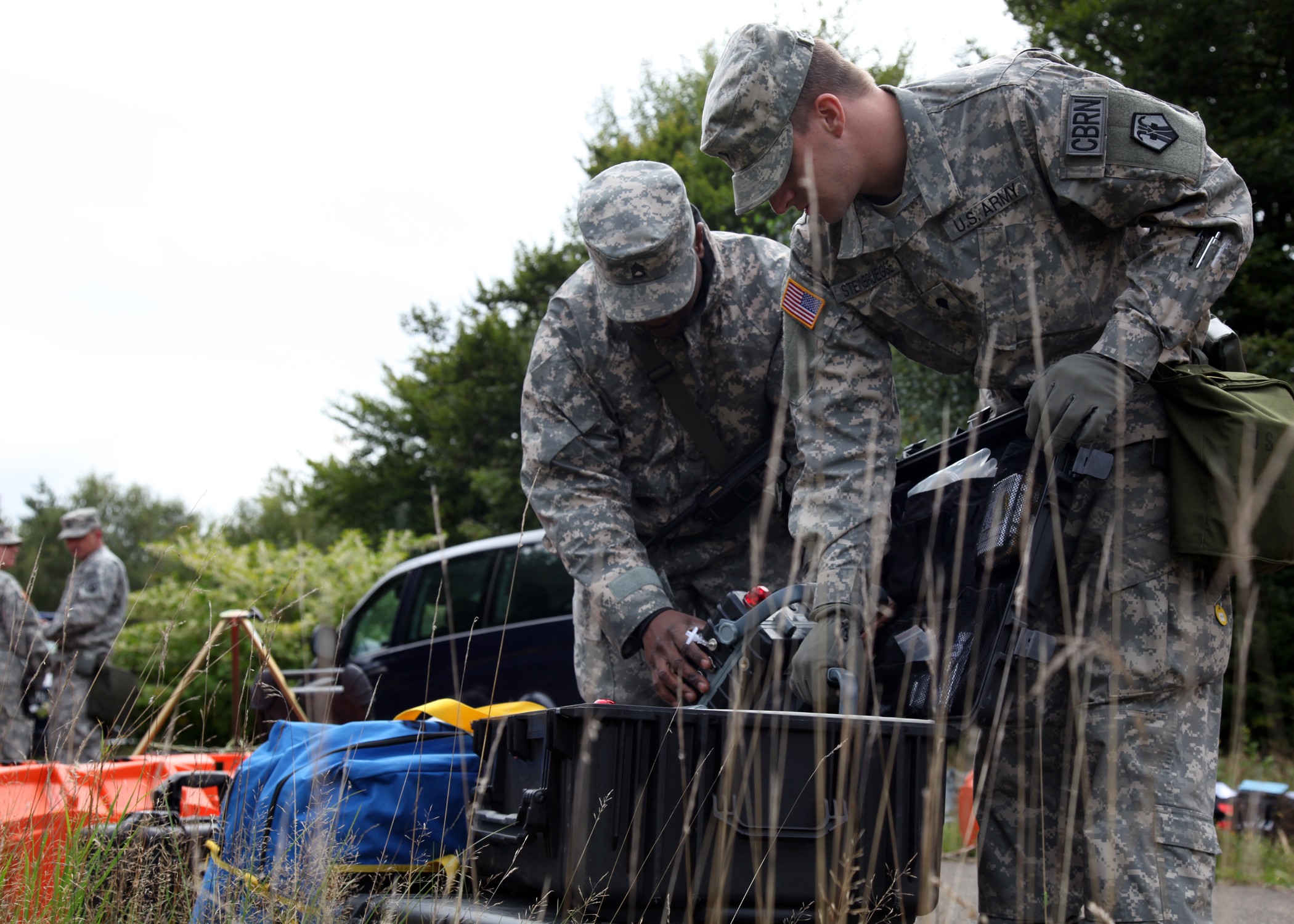
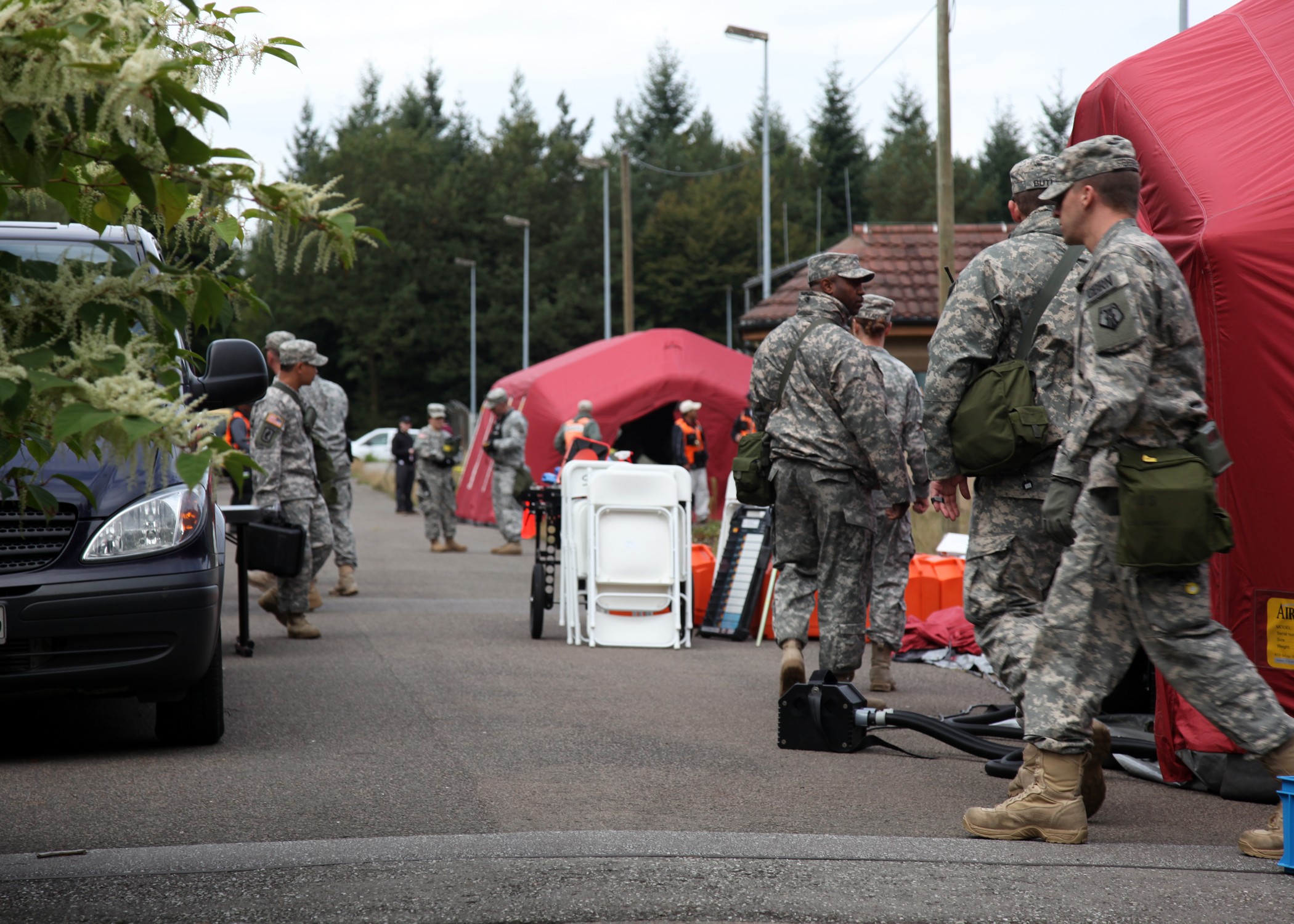
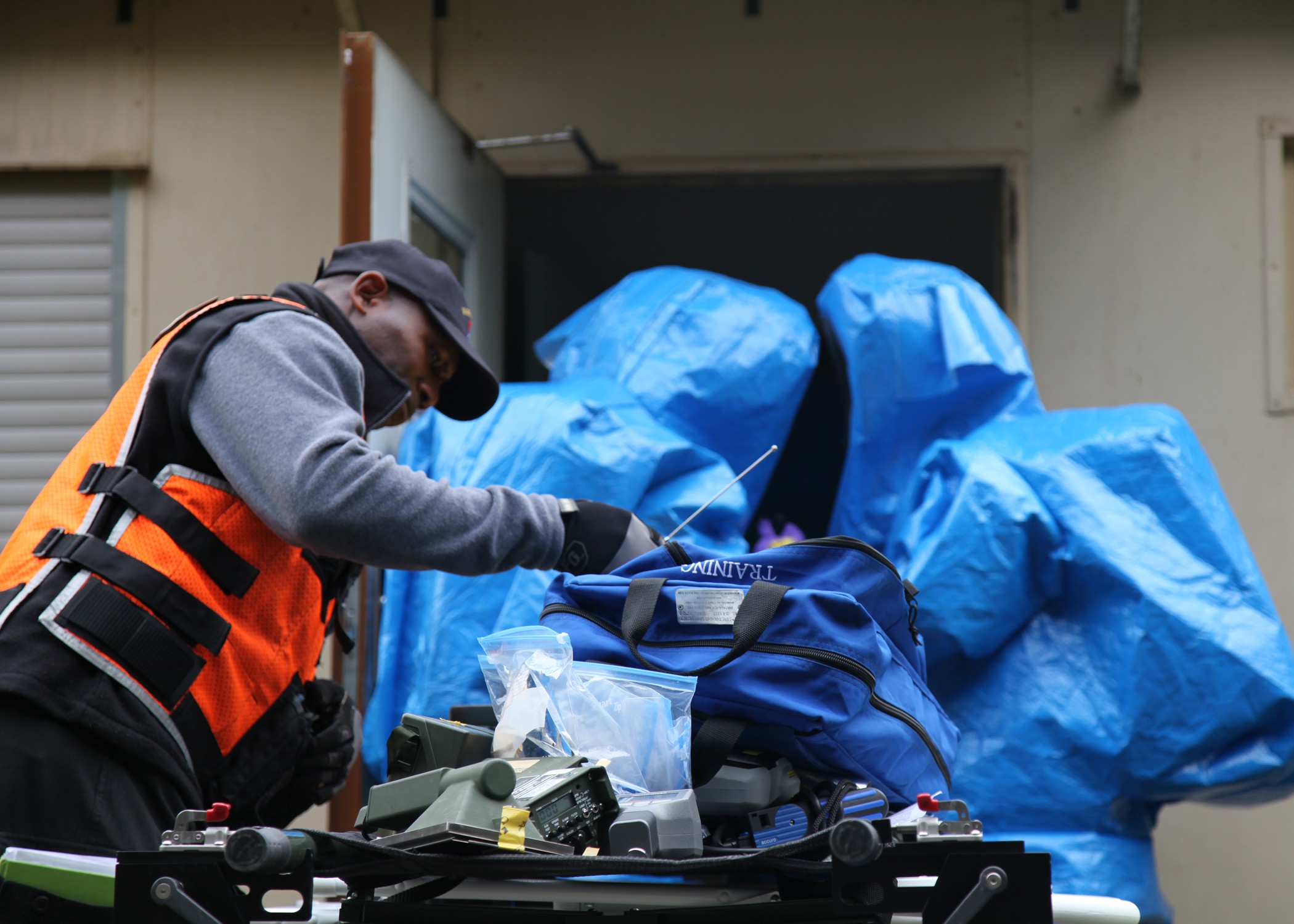
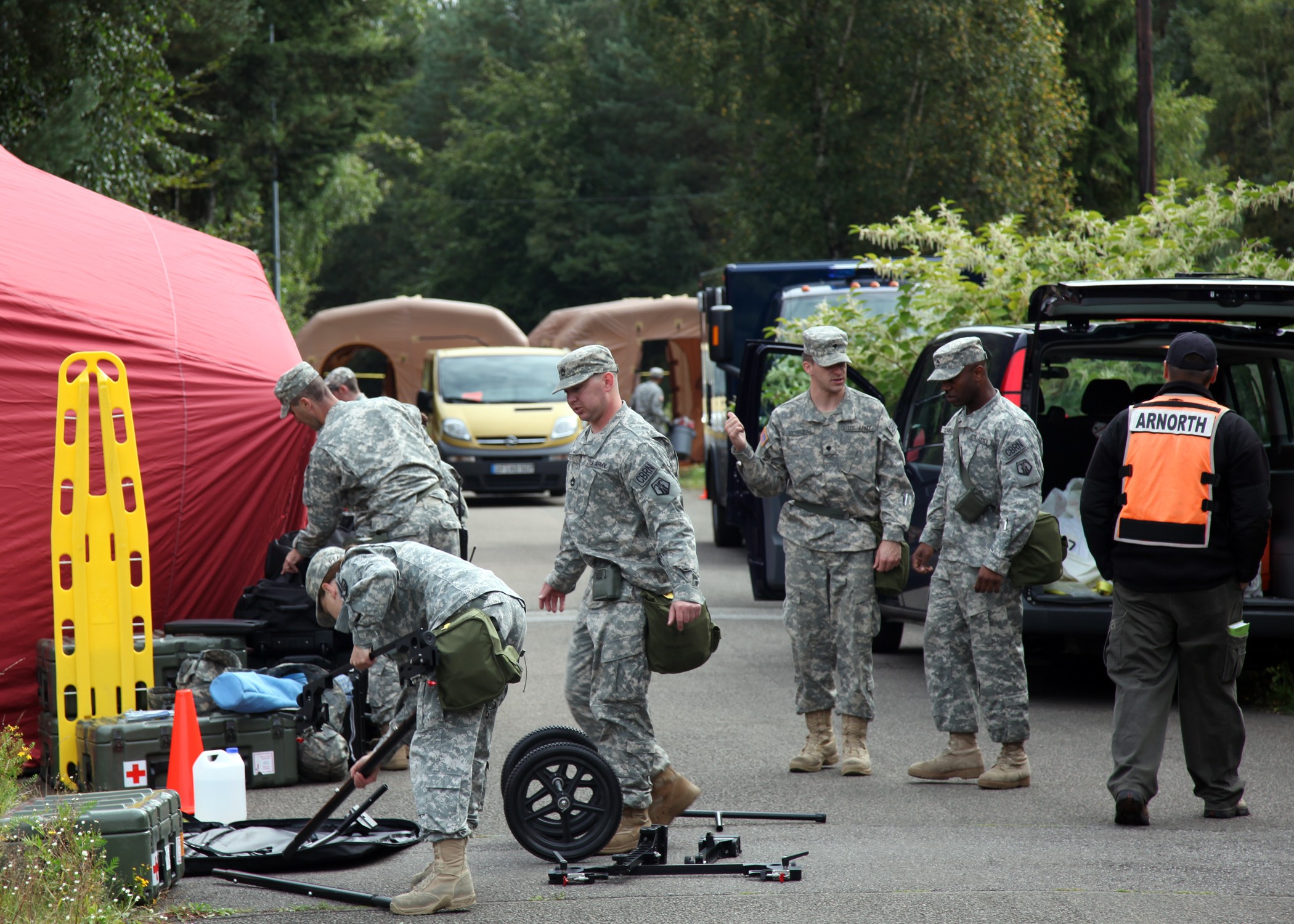
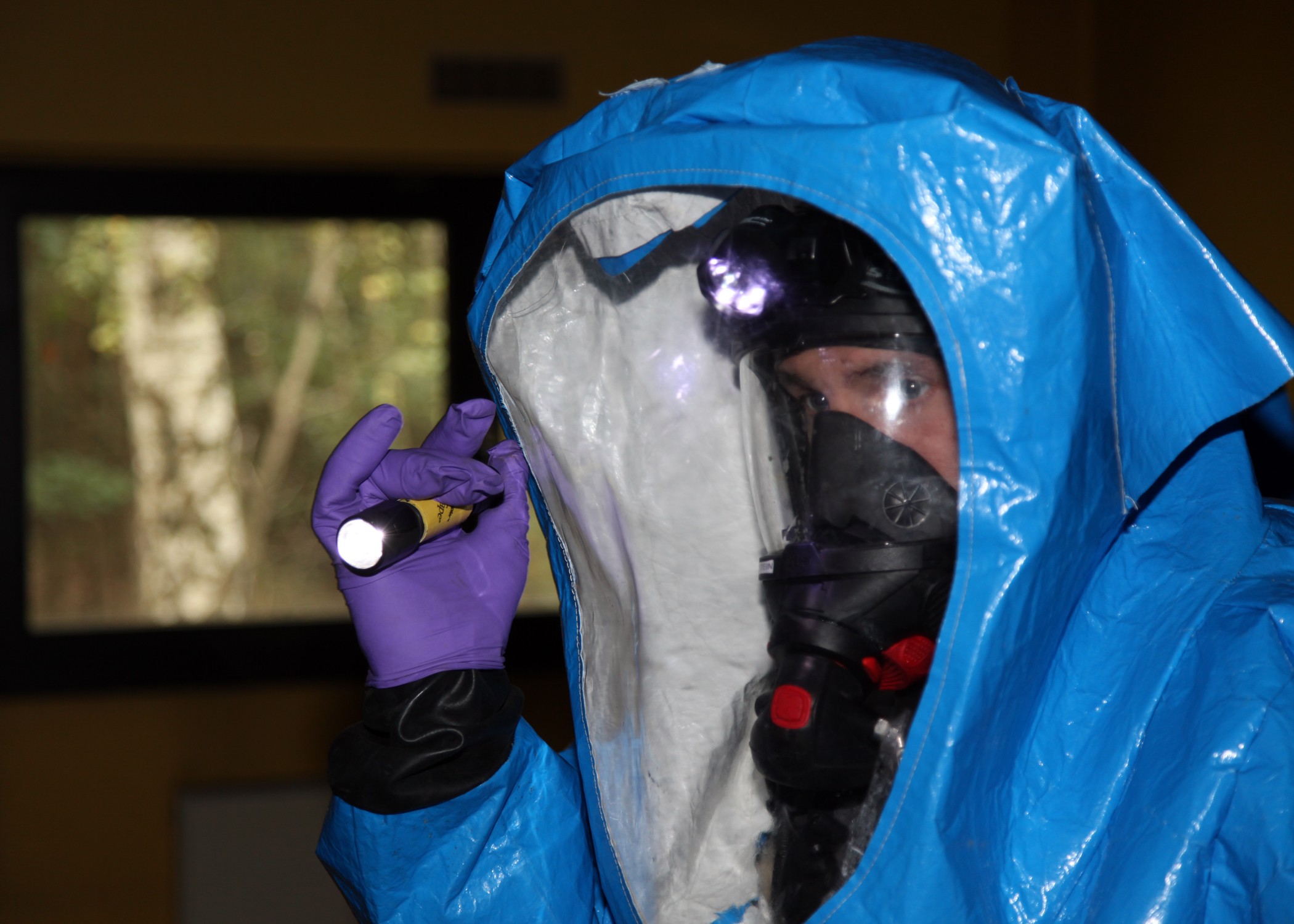
Social Sharing